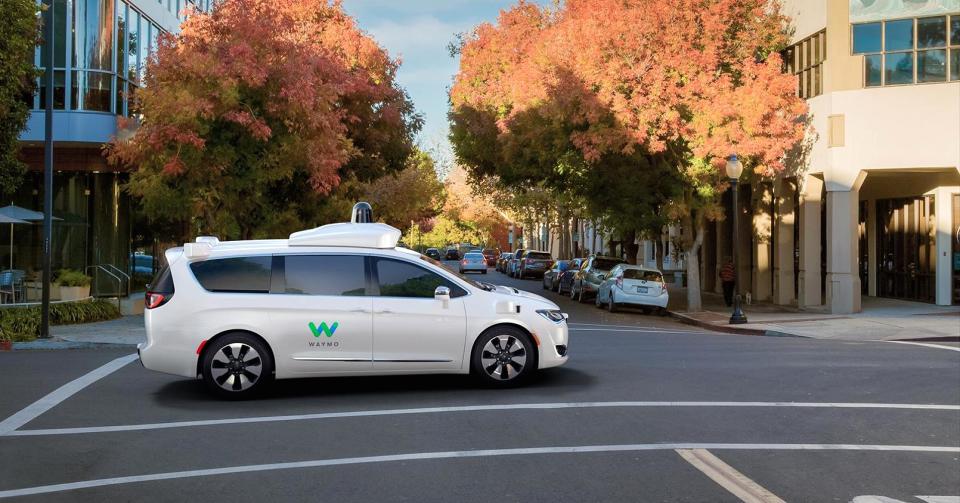How Avis rental cars formed an unlikely friendship with Alphabet

At first glance, it seemed pretty unlikely to me that Google and Apple would need to learn anything from a rental car company. Both Hertz and Avis posted worse-than-expected financial results in August. While most rental brands seem to be gaining ground in the J.D. Power 2016 North America Rental Car Satisfaction Study, they all hover between a solid B- and C+. Compare that to Apple, which has a J.D. Power score of 840 out of 1,000, just above the average of 835 for mobile phone brands. Not a single top mobile phone brand falls below 800. My experiences have confirmed as much. When I got on the plane a couple weeks ago, I thought I was headed to a wedding and a birthday party. In reality, I spent more time talking to the rental car company than any of the friends and family I visited. The car I rented had a nail in the tire — something we hadn't been able to spot in the dark airport parking lot the night before, but should have been easy fix. It wasn't. No shop would patch it because it was a rental. The insurance from the third-party travel site didn't cover new tires or roadside assistance. (That insurance company wouldn't take our calls anyway.) Special air sensors meant it was inadvisable to change the tire myself, but the local rental shop was closed. I ended up swapping it out across town for the only car available — a honking F-Series pickup, not exactly the easiest car for a New Yorker that's out of practice. When I returned to work on Monday, my chat with co-workers yielded similar gripes: There's no "Genius Bar" for renting a car. Nonetheless, Silicon Valley and the car rental business have become unexpected buddies. Avis announced a deal with Alphabet's Waymo to support a fleet of self-driving cars. In July, Avis said it would allow riders to book cars on Amazon's Alexa platform. Avis also owns Zipcar, a "cool, tech-heavy brand," as Avis Chief Innovation Officer Arthur Orduña called it, and works with RocketSpace, which has helped build 18 unicorn start-ups. Hertz is also leasing cars to Apple for self-driving car testing, on a much smaller scale . While Google-parent Alphabet certainly has the money to service its own cars, time is more valuable than cash in the race to get self-driving cars on the road. If Waymo relies on Avis to do the car maintenance, it can get on the road now — and get more testing miles to improve its systems and beat other companies to market. "I think the advantage is that you don't have to build out 11,000 locations," Orduña said. "We have layers of relationships, not just at the national or global level, but that extend all the way down to licensing and registration. While you are sitting on a pile of cash .... if you take a step back, do you want to hire 30,000 employees and same number of licensees, the upfront capital investment, just so you can put yourself in the position you can do that? Or get into market now, and layer on top." It's also going to become especially important when there are no drivers in the cars to do clean up and detailing. Orduña said some cars come back looking like they hosted a "frat party:" "We have some really good people and resources who have cleaned it all. And seen it all." As Goldman Sachs analysts point out, car rental companies have a symbiotic relationship with car manufacturers: They get cheap cars in exchange for taking excess inventory off car companies' lots. Now, in return, the rental car business is trying to capture some of that Silicon Valley "magic," according to Orduña. "And that sounds very Disney-like," Orduña admitted. "But how do we make it good? How do we make people go, 'Wow, I want to do that again and tell other people'? Make it all digital, really mobile, reflect what people are expecting already?" Orduña seems like an unlikely man to fix the rental car business. Armed with a degree from NYU film school for screenwriting, Orduña mostly worked in in journalism and in the cable television and advertising before ultimately landing at Avis just over a year ago, by way of ADT. Orduña credits Avis CEO Larry De Shon for the vision of the company's tech transformation, including building the foundation of many of the company's partnerships. Now Orduña is spearheading Avis' push to create a new narrative around the rental car industry. There's also a downside to that vision, the Goldman Sachs analysts wrote in a report this year: Unlike a technology company that's "asset-light," a fleet manager like Avis would have to manage real estate, storage, equipment — costs. Venture capitalists like to quip that "software is eating the world" and that products should "just work," and rental car companies are seeing that first hand. The share of money spent by business travelers on rental cars is falling behind Uber and Lyft . Still, Orduña said he's less concerned with the competition than with testing new possibilities. Like Alphabet, other self-driving car companies, such as Lyft, Uber and just about every car manufacturer, will need to invest in fleet management on the double. "It's all trying to push us that next generation opportunity. We can't get there without good partnerships," Orduña said. "We really like this partnership we are already learning quite a bit."
More From CNBC

 Yahoo Finance
Yahoo Finance 
